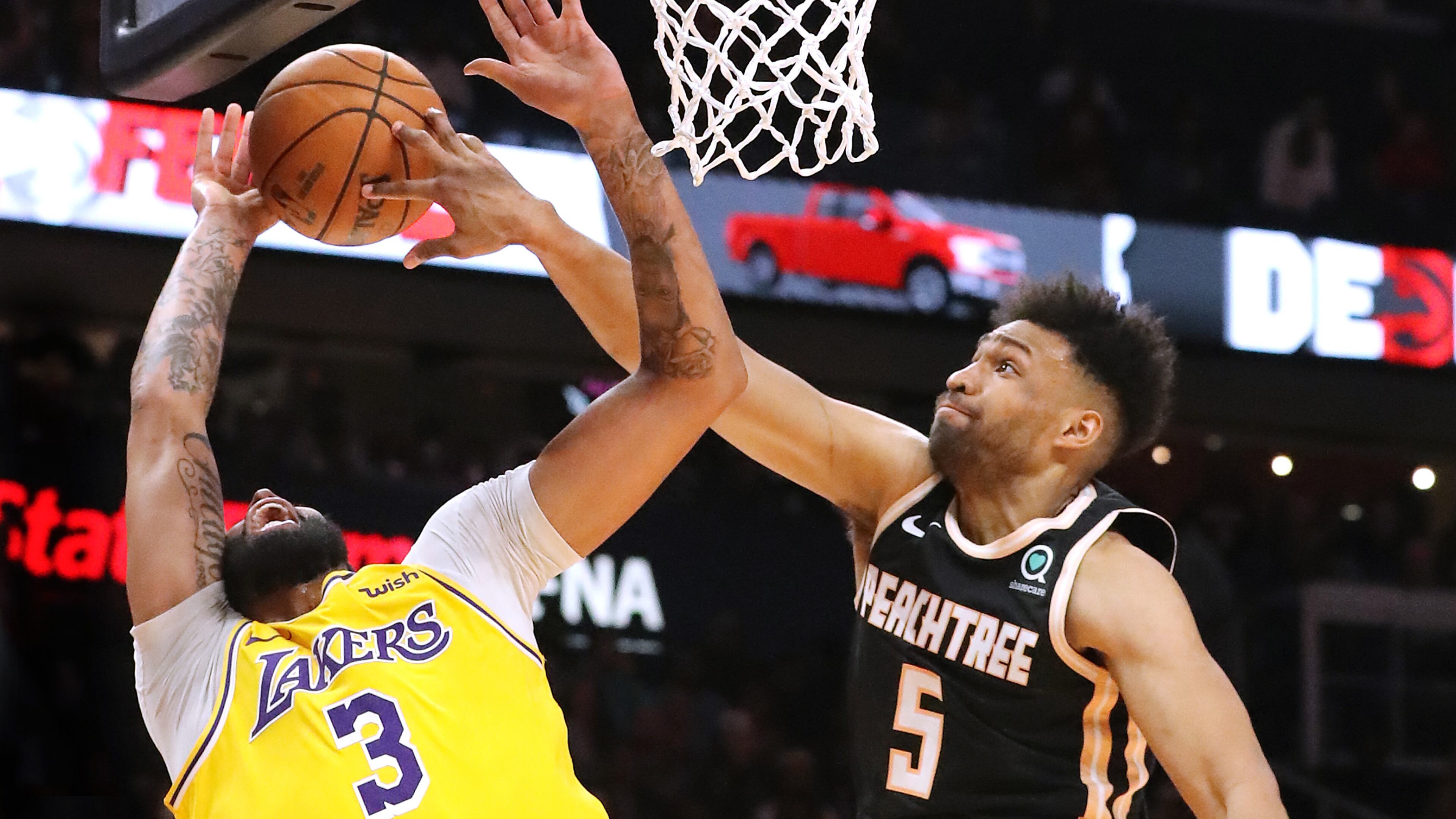There’s no defending Hawks until they play some real defense

When a team is winning at a 20% clip, one views victory with a certain amount of surprise and wonderment. As one would an eclipse or a royal flush.
And when that team, known to be a serial offender on defense, a unit that has at times put up less resistance than a finish line tape, wins by holding an NBA opponent to 16 points in the fourth quarter, it is all doubly extraordinary.
Talking about the Hawks here. You remember them? The team Trae Young drags behind him like a sack of Quikrete. Vince Carter's ride into the history books. Team Lottery.
The Hawks won Saturday night. Beat an OK team from Indiana while making life hard on it in the fourth quarter to finish off a 116-111 triumph. For a bunch that has allowed a bit more than 117 points per game — 29th most in a 30-team league — this represented a relative defensive tour de force.
The most maddening aspect of the Hawks in this thus far maddeningly regressive season has been on yonder end of the court where stops are supposed to happen. Yes, defense is still somewhat important in the NBA, at least that’s the rumor. And more the puzzle with the Hawks is the fact that their coach, Lloyd Pierce, is known as something of a defense whisperer.
There were nights at the close of 2019 in which the Hawks explored some of the most embarrassing canyons of rock bottom. Like giving up 158 at Houston. Or when the New York Knicks, truly a gang that can't shoot straight, went for 143. Presumably, if you show up at the arena and prove you can fog a mirror, that should be impossible.
Saturday was much better, one uptick in an 82-game cardiogram.
It can’t get worse, right?
“The one thing I’ve stated since I got here is that as we were going through this (rebuilding) process, we were going to be is competitive,” Hawks GM Travis Schlenk said. “And there have been three or four times this year where that hasn’t been the case. And that’s what’s not acceptable.”
Yeah, watching Young go for 30 points in a half and 41 in a game, as he did Saturday, is a hoot. But the charm of such eruptions wears off pretty quickly if when a game is done it’s obvious that nobody can score enough to compensate for an unwillingness to D up.
(Young himself is the very symbol of the Hawks current split personality. He is a dynamo on offense, where so much of his energy must go. And yet he doesn’t seem built for defense. His coach says he must show himself as “pesky” on that end, not the adjective normally applied to great defenders. Of his development at that end, Young says: “It’s very important, that’s something I can take to another level. That’s something that has to continue to get better. I think I’m on the right track, that’s all I can ask for.”)
So, if you’re the Hawks, maybe you should be more impressed with the 16 points they allowed in the fourth quarter Saturday than the 43 they scored in the first. And this they did without two of their rookies — De’Andre Hunter and Cam Reddish — who are being groomed as possible difference makers on D.
“The first quarter was fun,” Pierce said, “but that’s not the stuff I think is going to sustain. When you’re getting stops, you’re giving yourself an opportunity.”
Pierce was asked if by the close of this season, with the Hawks looking forward to nothing but another lottery pick, they have any hope of being a good defensive team. Not great, not above average, just adequate.
There are no stirring promises, just reality.
“We’ll be better,” said the coach who this season has been battling the twin obstacles of youth and injury. “I want to be marginally better. But I don’t know what ‘good’ is. I’m always going to be asking for more. I think everyone will be.”
There are so many layers to becoming just an average defense, to which these Hawks now can only aspire. Knowing your opponents’ tendencies. Knowing the scheme so well that it becomes a trait. Knowing each other and being assured enough to talk on defense — “Communication is probably our biggest issue. When you’re supposed to switch (guarding a man) and nobody says anything you’re going to have some problems,” Pierce said.
But there are some simple aspects, too. Pierce sums up the visceral elements of playing defense in three parts: “Mentality. Heartbeat. Attitude.”
A team can have splashes of offensive color. It can market to the short-attention-span, highlight-driven audience. But until it shows the will to do the hard work of defense on a regular basis, that’s not a team anybody should trust.

